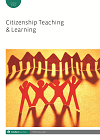
Full text loading...

This study investigates university students’ perceptions of identity, rights and duties. The context of the study is an English department at a public-sector university in Sindh, Pakistan. The main research question that guides this study is ‘What perceptions of identity, rights and duties are held by a sample of undergraduate students in Pakistan?’ Semi-structured interviews were used as the research instruments. Cogan’s model of citizenship was used as theoretical frameworks guiding this study. Data were collected from twenty students of final-year undergraduate class. The key arguments based on findings of this study are that participants’ perceptions of identity, rights and duties included types and examples of citizenship themes discussed by Cogan as well as the themes particularly relevant to the participants’ context such as religion, morality and caste issues. Asian understanding of citizenship advocates importance of morality and religion or spirituality for Asian citizens. However, the literature reviewed did not exhibit any reference to the importance of caste in a citizen’s sense of identity. I make recommendations for further research to explore the role of context in learners’ citizenship interpretations along with other recommendations for research and professional practice.

Article metrics loading...

Full text loading...
References


Data & Media loading...

Publication Date:
https://doi.org/10.1386/ctl_00082_1 Published content will be available immediately after check-out or when it is released in case of a pre-order. Please make sure to be logged in to see all available purchase options.